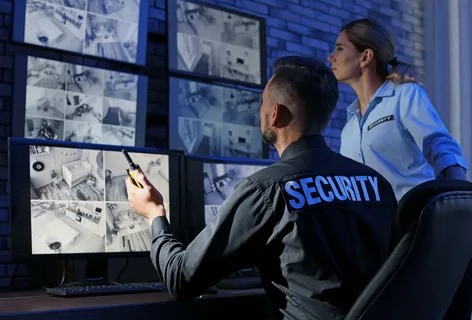US Security Guard Jobs
In today’s fast-paced and increasingly complex society, the need for safety and security has never been more pronounced. Security guard jobs in the United States are at the frontline of protecting people, property, and assets across various sectors—from corporate offices and retail centers to residential communities and major events. In this comprehensive guide, we delve into the multifaceted world of security guard careers, exploring what the job entails, the training and certification requirements, challenges and opportunities, and the future trends shaping the industry.
The Essential Role of Security Guards
Security guards play a critical role in maintaining safety and order. They serve as the first line of defense in preventing unauthorized access, deterring criminal activity, and responding to emergencies. Whether patrolling a corporate campus or monitoring surveillance cameras in a retail store, these professionals are tasked with ensuring that both people and assets remain secure.
Key Responsibilities
- Surveillance and Monitoring: Security guards often use a combination of on-site patrols and video monitoring to detect suspicious activity. They are trained to identify potential security breaches before they escalate into serious incidents.
- Access Control: Many security guards are responsible for managing who enters and exits a property. This involves checking identification, verifying credentials, and ensuring that only authorized personnel gain access.
- Emergency Response: In the event of an incident—be it a fire, medical emergency, or security breach—guards are expected to react swiftly and efficiently. They may initiate evacuation procedures, alert emergency services, or provide first aid.
- Reporting and Documentation: Accurate record-keeping is a vital part of the job. Security professionals compile detailed incident reports, which can be crucial for legal or insurance purposes.
- Customer Service: Beyond their protective functions, security guards often act as the public face of the organizations they serve. They assist visitors, provide directions, and help maintain a calm and orderly environment.
Types of Security Guard Positions
The security industry in the US is diverse, offering a variety of roles that cater to different skill sets and interests. Here are some of the most common types of security guard positions:
1. Armed vs. Unarmed Security Guards
- Unarmed Security Guards: These professionals do not carry firearms and are often tasked with routine monitoring, access control, and general patrol duties. They rely on non-lethal methods to handle disruptions.
- Armed Security Guards: In high-risk environments, armed security guards provide an added level of deterrence. Their training includes firearm handling and advanced self-defense tactics, making them suitable for banks, high-profile events, and sensitive facilities.
2. Corporate and Industrial Security
- Corporate Security: Security personnel in corporate settings are responsible for protecting company assets, confidential information, and employees. They often work in office complexes, data centers, and corporate campuses.
- Industrial Security: At manufacturing plants, warehouses, and distribution centers, security guards focus on preventing theft, vandalism, and unauthorized access. Their role often involves overseeing large perimeters and safeguarding valuable equipment.
3. Retail and Hospitality Security
- Retail Security: In shopping malls and stores, security guards help deter shoplifting, manage crowd control, and ensure a safe shopping environment. Their presence is essential in maintaining the integrity of the retail space.
- Hospitality Security: Hotels, casinos, and entertainment venues rely on security staff to monitor guests, manage large crowds, and handle any disputes that arise in a high-energy atmosphere.
4. Event and Mobile Patrol Security
- Event Security: Large-scale events, concerts, and festivals require specialized security teams to manage entry points, control crowds, and ensure the safety of attendees. These roles are often temporary but highly demanding.
- Mobile Patrol Security: Mobile patrol officers cover expansive areas, often in neighborhoods or business districts. Their job is to provide a visible security presence, conduct random patrols, and respond to incidents across multiple locations.
Training, Certification, and Licensing
Becoming a security guard in the US typically involves rigorous training and obtaining the appropriate certifications. While requirements can vary by state and employer, most security positions require a baseline of formal training and licensing.
Basic Training Requirements
- State-Mandated Training: Many states require aspiring security guards to complete a state-approved training program. These courses cover essential topics such as emergency procedures, legal issues, and conflict de-escalation techniques.
- On-the-Job Training: In addition to formal coursework, new hires often receive on-the-job training under the supervision of experienced personnel. This practical experience helps them adapt to the specific needs of their role.
- Continuing Education: The security field is dynamic, with regular updates to best practices and legal requirements. Continuing education ensures that security guards stay current with the latest techniques and regulations.
Certification and Licensing
- State Licenses: Most states require security guards to obtain a license before they can be employed. This license may require passing a background check, completing training hours, and demonstrating proficiency in security procedures.
- Specialized Certifications: For roles such as armed security or specialized surveillance, additional certifications are often required. These might include firearms training, first aid certification, and courses in defensive tactics.
- Renewal and Upgrading: Licenses typically require periodic renewal, which may involve refresher courses and updated training sessions. This ensures that security guards maintain a high standard of competency throughout their careers.
Compensation, Benefits, and Career Growth
Earning Potential
Salaries for security guard jobs in the US can vary widely depending on factors such as location, experience, and the type of security work performed. Generally, entry-level positions offer modest pay, but there is significant potential for growth with experience and additional certifications.
- Entry-Level Salaries: Many security guards start at an hourly rate that aligns with the minimum wage in their region, but overtime and shift differentials can increase overall earnings.
- Experienced Guards and Supervisors: With experience and additional responsibilities, such as supervisory roles or specialized assignments (like armed security), earning potential increases substantially. Some positions even offer benefits like healthcare, retirement plans, and paid leave.
Career Advancement
The security industry offers numerous pathways for career advancement. For individuals looking to build a long-term career, opportunities extend beyond the role of a security guard:
- Supervisory and Management Roles: Seasoned security professionals can move into supervisory or management positions, overseeing teams and coordinating large-scale security operations.
- Specialized Fields: Advanced training in areas such as cybersecurity, investigative services, or executive protection can open doors to specialized roles that command higher salaries and offer increased responsibilities.
- Entrepreneurial Opportunities: Some experienced security professionals choose to start their own security firms, leveraging their expertise to provide tailored security solutions to businesses and communities.
Challenges and Rewards of the Job
The Challenges
While security guard jobs can be rewarding, they are not without challenges. The nature of the work can be physically demanding, mentally stressful, and sometimes unpredictable.
- Irregular Hours: Many security positions require working nights, weekends, and holidays, which can impact work-life balance.
- High-Stress Situations: Security guards often confront high-pressure scenarios, such as emergencies, conflicts, or potentially dangerous situations. This requires quick thinking, emotional resilience, and effective communication skills.
- Physical Demands: Patrolling large areas, standing for long periods, and responding to emergencies can be physically taxing. Good physical fitness and endurance are essential for success in the field.
The Rewards
Despite these challenges, many security guards find their careers to be immensely fulfilling.
- Making a Difference: Security guards play a vital role in maintaining public safety. The knowledge that you are protecting people and property can be a powerful motivator.
- Professional Growth: The skills developed in security work—such as crisis management, attention to detail, and effective communication—are valuable in many other career paths.
- Job Stability: In a world where security threats continue to evolve, the demand for competent security professionals remains strong. This creates a stable job market with opportunities for advancement and specialization.
The Impact of Technology on Security Jobs
Technology is reshaping the security industry, introducing new tools and methods that enhance the effectiveness of security guards. Advances in surveillance equipment, access control systems, and communication devices have transformed traditional roles.
Enhanced Surveillance and Monitoring
- CCTV and Video Analytics: Modern security systems use high-definition cameras and sophisticated software to monitor premises. Real-time analytics can detect unusual behavior and alert security personnel to potential threats.
- Drones and Remote Monitoring: In large facilities or open areas, drones offer a cost-effective solution for aerial surveillance. They can cover extensive areas quickly, providing a bird’s-eye view that traditional patrols cannot match.
Integrated Security Systems
- Smart Access Control: Advanced access control systems use biometric data, RFID technology, and mobile credentials to secure entry points. These systems enhance both security and convenience for businesses.
- Incident Reporting Software: Digital tools streamline the process of documenting and reporting incidents. Mobile apps and cloud-based systems enable security guards to record events in real time, ensuring that accurate information is available when needed.
Future Trends
As technology continues to evolve, the role of security guards is also adapting. The integration of artificial intelligence (AI) and machine learning is expected to further refine surveillance capabilities, enabling predictive analytics that can prevent incidents before they occur. For security professionals, staying abreast of these technological advancements is crucial for maintaining effectiveness and advancing in their careers.
Soft Skills: The Human Element
While technology plays an increasingly important role, the human element remains critical in security work. Soft skills such as communication, empathy, and conflict resolution are indispensable.
- Effective Communication: Security guards must be able to communicate clearly with colleagues, law enforcement, and the public. Good communication helps de-escalate conflicts and ensure that instructions are followed during emergencies.
- Observation and Vigilance: Keen observation skills are essential for detecting subtle changes in behavior or unusual activity. This attentiveness can mean the difference between preventing an incident and reacting to a crisis.
- Empathy and Customer Service: Beyond security, guards often serve as ambassadors for the organizations they protect. A friendly, helpful demeanor can foster a sense of safety and community, turning a routine security role into a service-oriented profession.
The Road Ahead: Future Prospects in Security Careers
The landscape of security guard jobs in the US is evolving rapidly. With increasing investments in technology, growing security concerns in urban and rural areas alike, and a diversified range of roles available, the future for security professionals looks promising.
Adapting to a Changing Environment
- Lifelong Learning: Security guards who commit to ongoing training and skill development will be well-equipped to meet the challenges of tomorrow. Continuous education in both technical and soft skills is key to staying competitive.
- Embracing New Technologies: As digital tools become more integrated into security practices, professionals who are adept at leveraging these innovations will have a competitive edge.
- Broadening Career Horizons: The evolving nature of the security industry means that traditional roles are expanding. For those willing to explore new avenues—such as cybersecurity integration or investigative security—there are abundant opportunities for growth and diversification.
US Security Guard Jobs
Security guard jobs in the US are more than just a line of work—they are a commitment to protecting communities, upholding safety standards, and adapting to an ever-changing world. With a wide variety of roles available, from corporate and industrial security to retail, event, and mobile patrol positions, the opportunities in this field are as diverse as they are essential.
Through rigorous training, certification, and a continuous commitment to professional growth, security guards are uniquely positioned to navigate the challenges of modern security while embracing the rewards of a fulfilling career. Their work not only safeguards physical spaces and people but also contributes to the overall sense of safety and stability in society.
For anyone looking to enter a career that offers job stability, meaningful work, and the chance to develop a wide array of skills, a career in security is worth considering. As technology continues to evolve and the security landscape shifts, the role of security guards will remain indispensable—serving as the backbone of safety in communities across the nation.
Embrace the challenge, invest in your training, and be prepared to adapt in an industry that is as dynamic as it is essential. The future of security is bright, and with the right blend of skill, dedication, and innovation, you too can be part of this vital field that protects our way of life.



